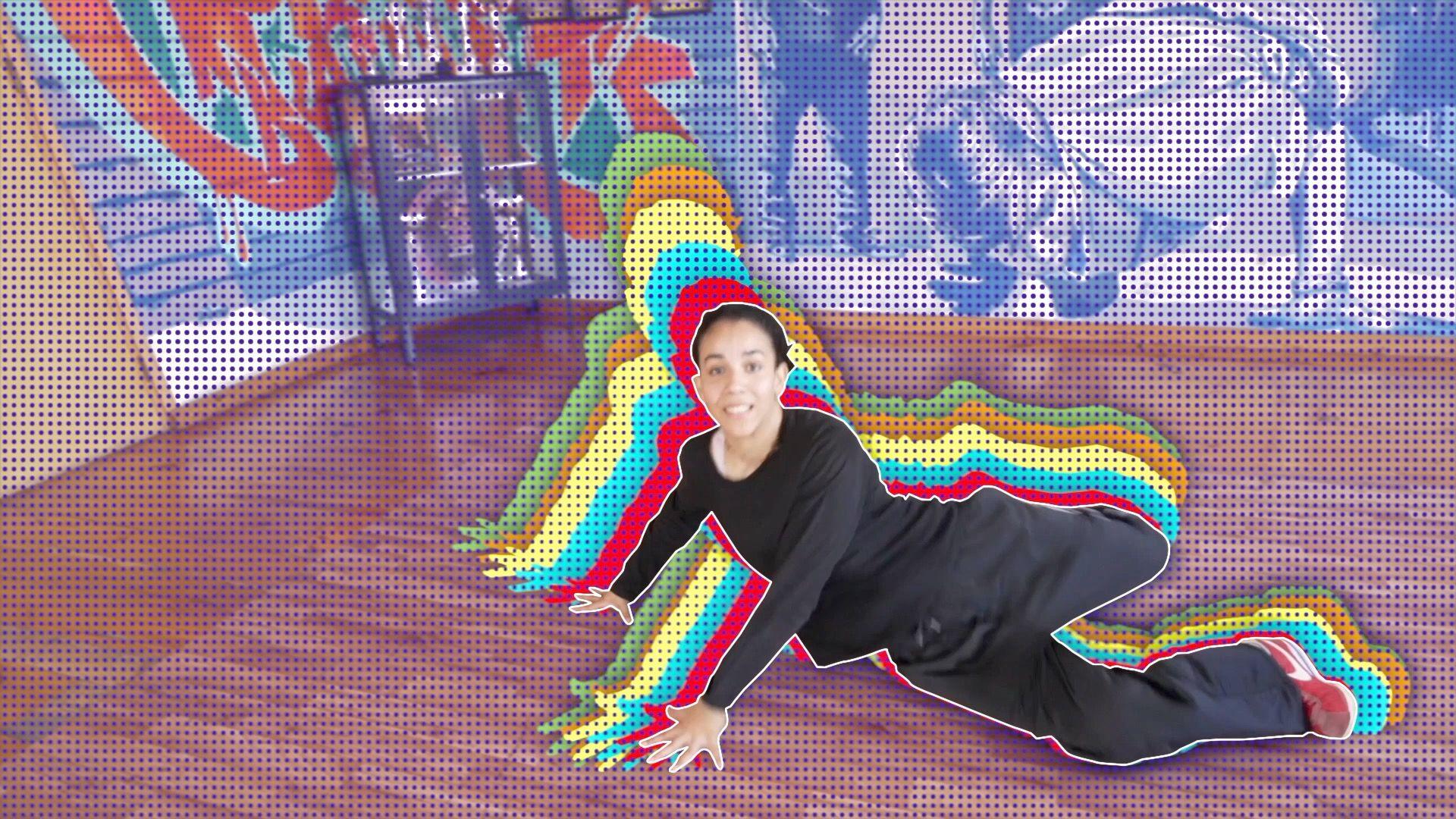Olympics sparks interest at breaking dance club
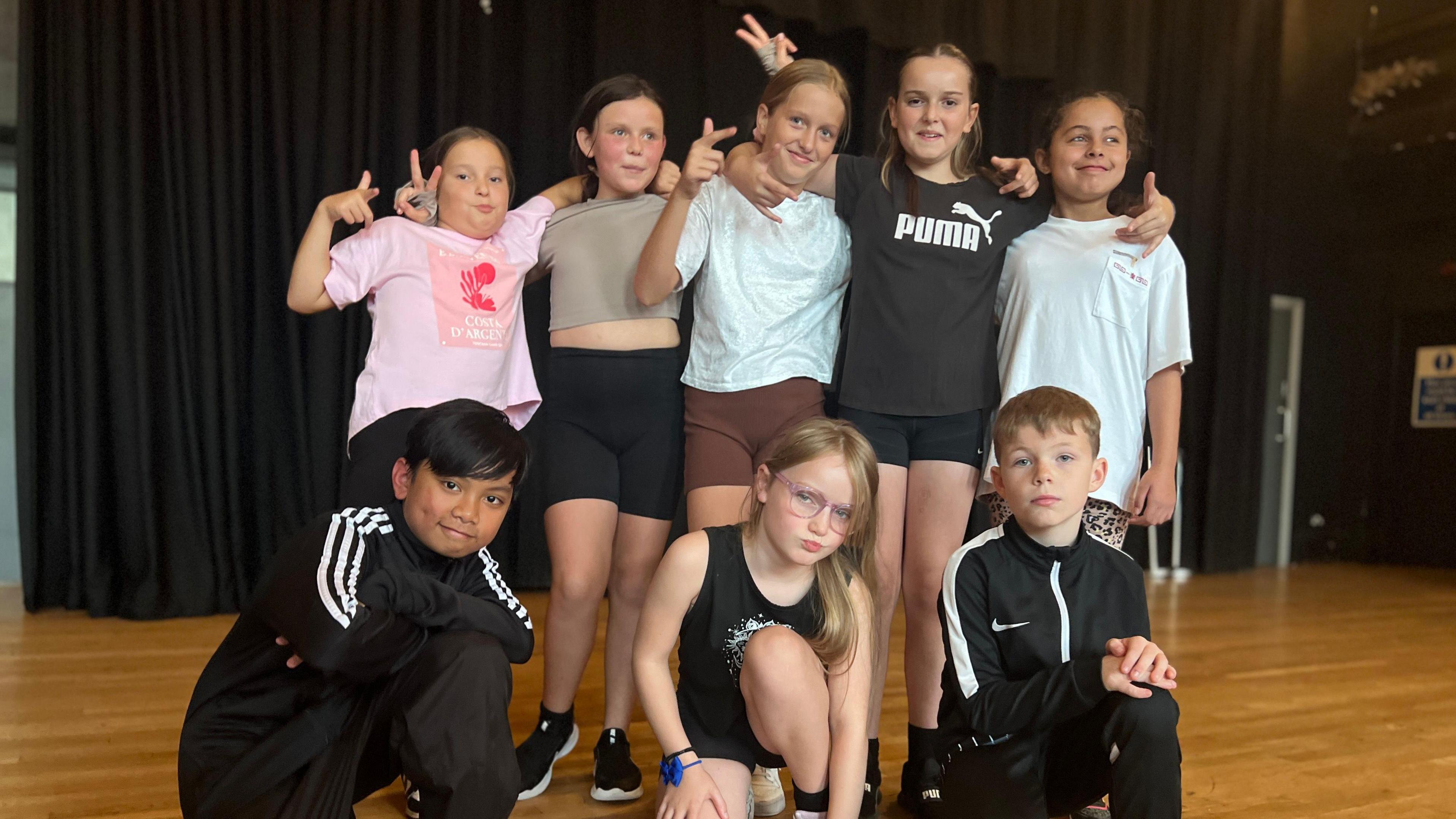
Children say learning breaking, which has featured in the Olympics, has been "really fun"
- Published
Breaking classes are removing barriers for children living "in one of England's most deprived areas", a dance leader has said.
Your Next Move teaches breaking to young people in Tredworth, Gloucester, which also "inspires and connects" kids from different backgrounds, the dance group's founder Tyler Attwood said.
Breaking featured as a sport in the Olympics for the first time this summer, which sparked an uptick at the classes.
“I think it was an amazing thing to see. You need to be athletic, and have an understanding of the music," he added.
Breaking is a style of street dance that originated in New York in the 1970s.
The Gloucestershire dance sessions offer kids aged between eight and 16 years old a chance to meet people "they look up to, and potentially a career to pursue," Mr Attwood added.
“Travel is a barrier, finance is a barrier. Sometimes stepping into a new place is a barrier. We are trying to break those down," he said.
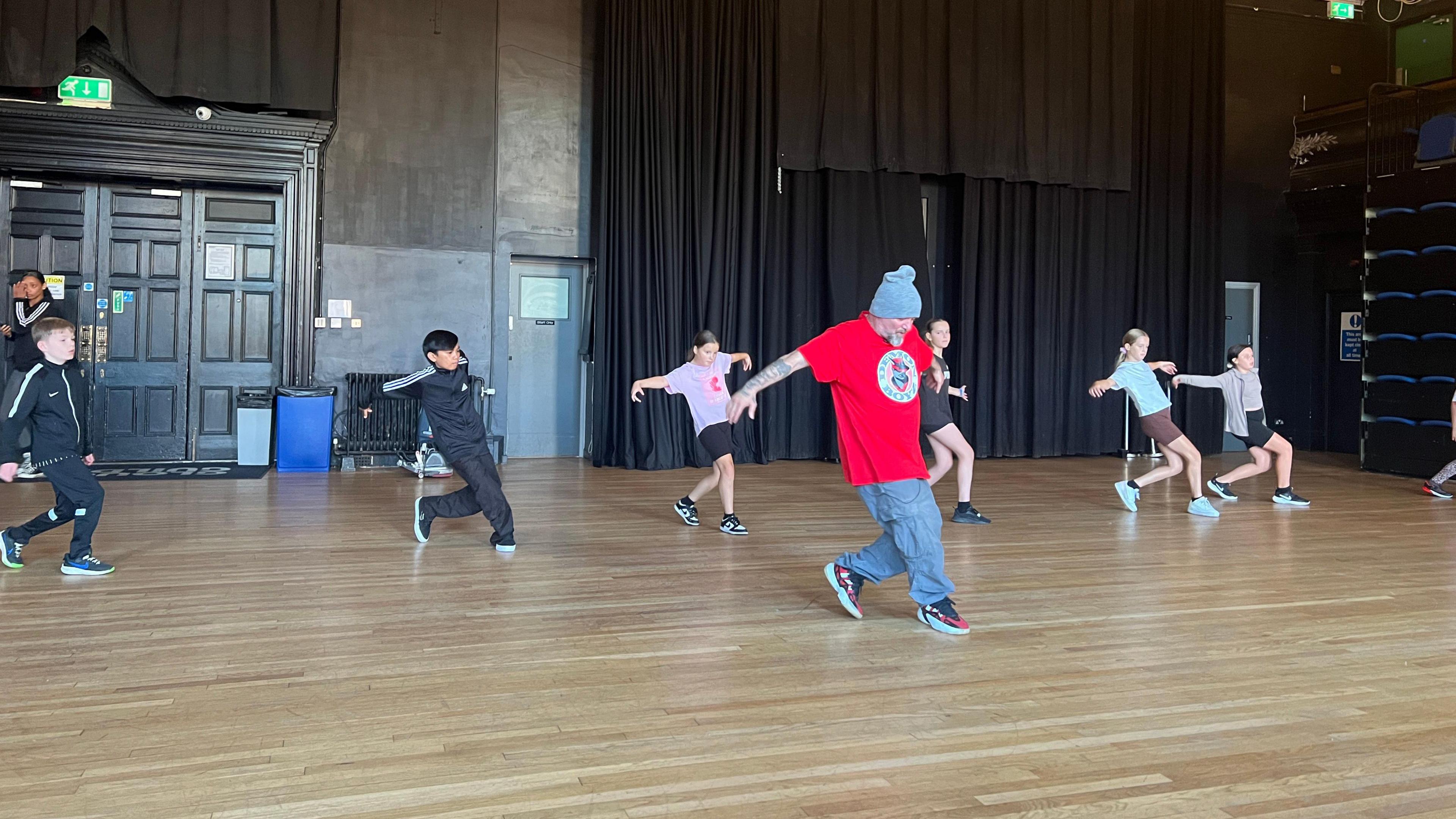
The classes are held in Parry Hall in Tredworth
The classes are popular with kids like nine-year-old Jenson and 13-year-old Chloe.
“You learn new moves and you show it to other people. It takes a lot of practice,” Jenson said.
Chloe added: “It’s the style of dancing that I like. It’s a time where you can come and feel open and express your anger or emotions from that day.”
The group has now been awarded funding to explore Gloucester’s “breaking history".
“Breaking is something that has been around for a very long time.
"It’s something that requires so many different skills. You need to be athletic, and have an understanding of the music," added Mr Attwood.
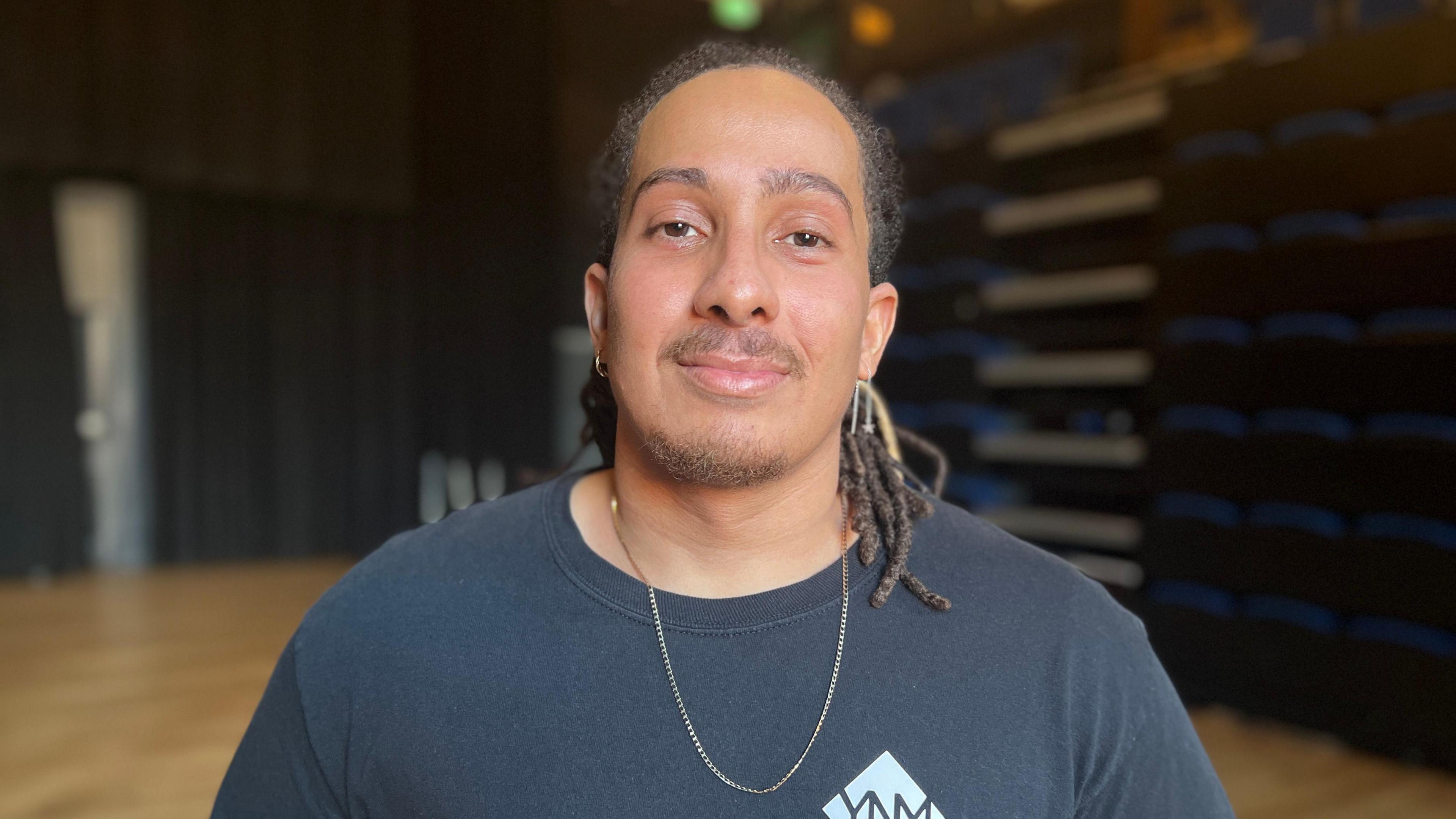
Founder Tyler Attwood said breaking requires lots of different skills
He described Tredworth as one of the most deprived areas in England.
“We’ve been able to thrive here, and give creative opportunities to young people, who have been able to perform on stages and meet people," he added.
Get in touch
Tell us which stories we should cover in Gloucestershire
Follow BBC Gloucestershire on Facebook, external, X, external and Instagram, external. Send your story ideas to us on email or via WhatsApp on 0800 313 4630.
Related topics
- Attribution
- Published9 August 2024
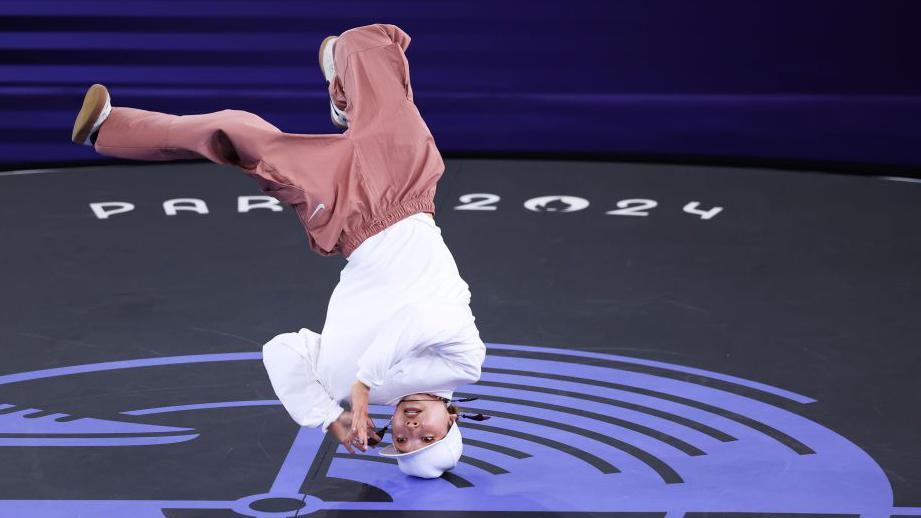
- Published17 August 2024

- Published7 August 2024
